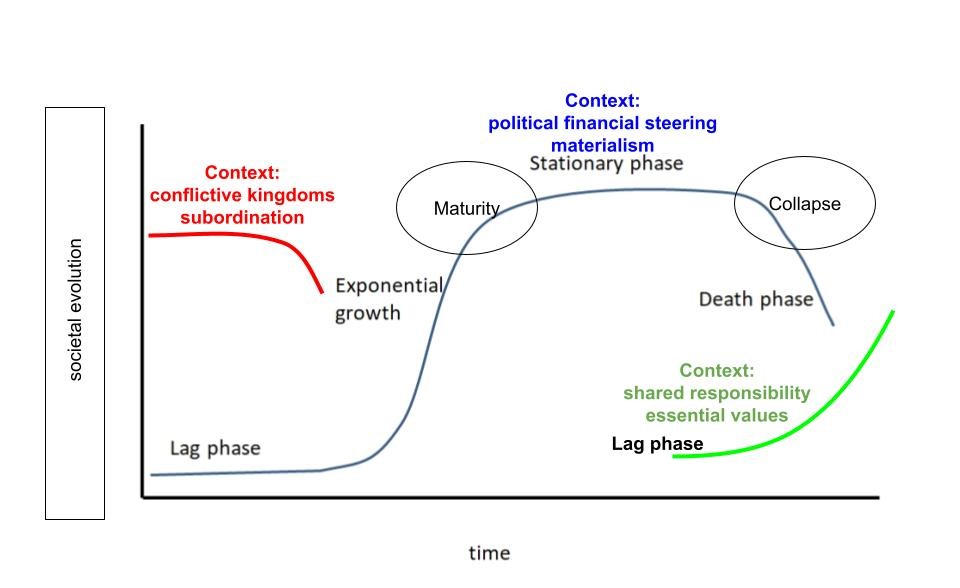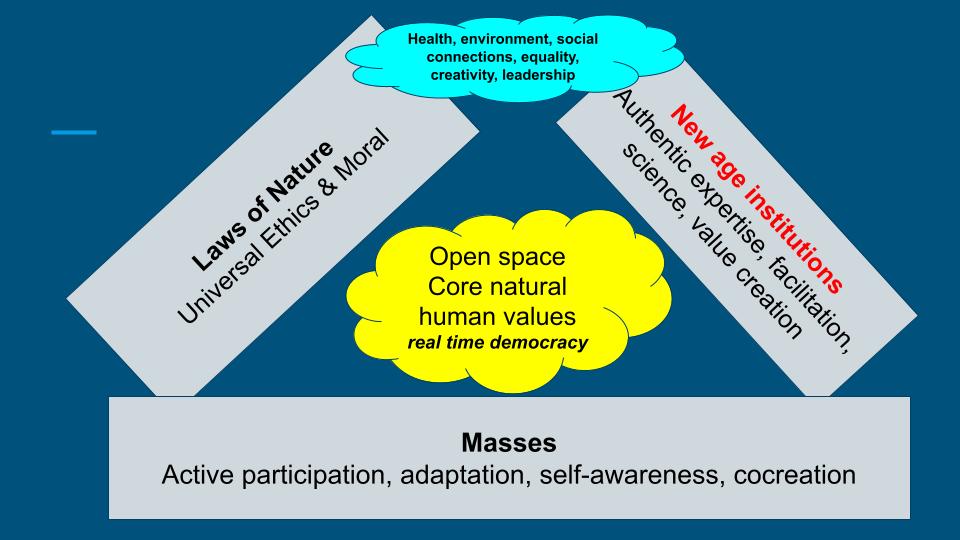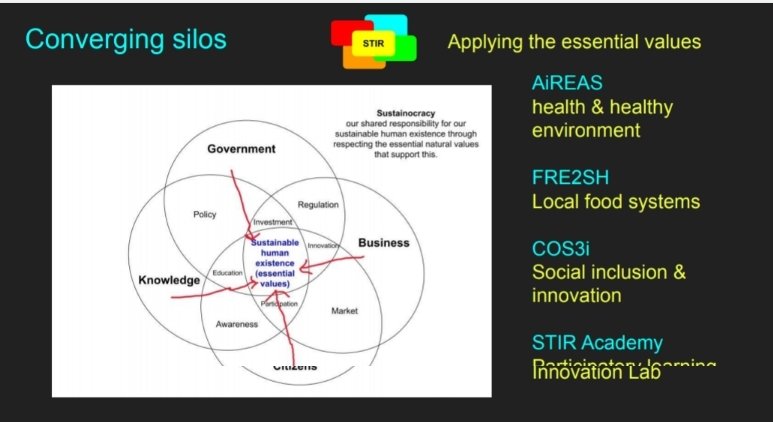The comfort of joining a new era
The current era can be characterized by organized political financial materialism. A culture that affects all sectors of society, such as citizens, business, government, science and education. The era developed itself gradually in the 17th century when businesses started to dominate the playing field, demanding investments in education and infrastructures for their financial growth scenarios. Currently the growing costs of the care society and all remedial actions to address the negative degenerative spiral, are putting even larger performance pressure on the financial growth demand of society. The era is pushing itself towards the abyss of the unsustainable and collapse (see first image below).
Instead of fearing this abyss there is the comfort and joy of joining a new era. That is the era of shared responsibility between citizens and institutions to develop the essential values of our existence together. It is done in symbiotic co-creation with our natural environment. It represents a different citizen and institutional mindset (second image) in which there are plenty of success factors to be found for all involved. The images below show the emerging new reality in which all current societal players still play their own role, however committing in word and action to our essential human values.

The engagement enables the transformation of a traditional hierarchy of interests into an open field of co-creation. The institutions develop a specialist role, facilitating progress together with the citizens. With Sustainocracy as a working ideology, we are already firmly anchored in this contextual era. We acting as initiator through the positive invitation while positioning ourselves as space holder. Like this all the other players can be fully themselves at the table and define their level of engagement, impact and desired reciprocity (often to be much more than just financial returns or profit).

Another visualization on the convergence of societal silos into shared responsibilities.
Breaking with 10000 years of history
10000 years ago humankind developed the desire to own and control things. This had disastrous effects on our psychology, taking out the worst of our behavior. It may arguably be a phase in our human development, necessary to learn to deal with our impulses. In our current era this mentality has brought us on the verge of societal collapse and sincere doubts about the sustainable perspectives of our species, despite all technologies and science at hand. In a recent publication about Place Based Sustainability, an article was included about the breaking with this history of societal conditioning around financial growth and status. Instead of developing the mainstream attitude, I personally decided to step out and define my own human values based reality. A reality that would become Sustainocracy over time. The article also describes the process of the city of Eindhoven to define its own authenticity and identity as a city.
We see this break away attitude appear more and more, also in regional development, where quality of life gains in importance rather than just financial growth. In this short video I describe the painful human phase of greed, suppression, misuse of people and resources, warfare, etc that we are leaving behind us. Instead we define our authenticity and identity as wellness driven species, integrating ourselves back in a symbiotic way with ourselves and our natural environment.
Struggling with time
This weekend we change our clocks again to summer time. For thousands of years humankind has been struggling with time, the corresponding seasons, the turns of our planet, our relationship with the moon and circling the sun. These struggles can be related to our attempts to understand and plan the seasonal changes in order to develop food productions. These two articles from the BBC provide a unique bit of insight as to the creativity applied and adjustment introduced in order to get where we stand today. And even nowadays, with all the technologies and science available, we still remember the millennium shift struggles with computer networks and services.
How Julius Caesar made the longest year in history https://www.bbc.com/future/article/20240227-how-julius-caesar-made-the-longest-year-in-history-and-brought-us-leap-years
The ancient Roman alternative to daylight saving time https://www.bbc.com/future/article/20240328-the-ancient-roman-alternative-to-daylight-savings-time






